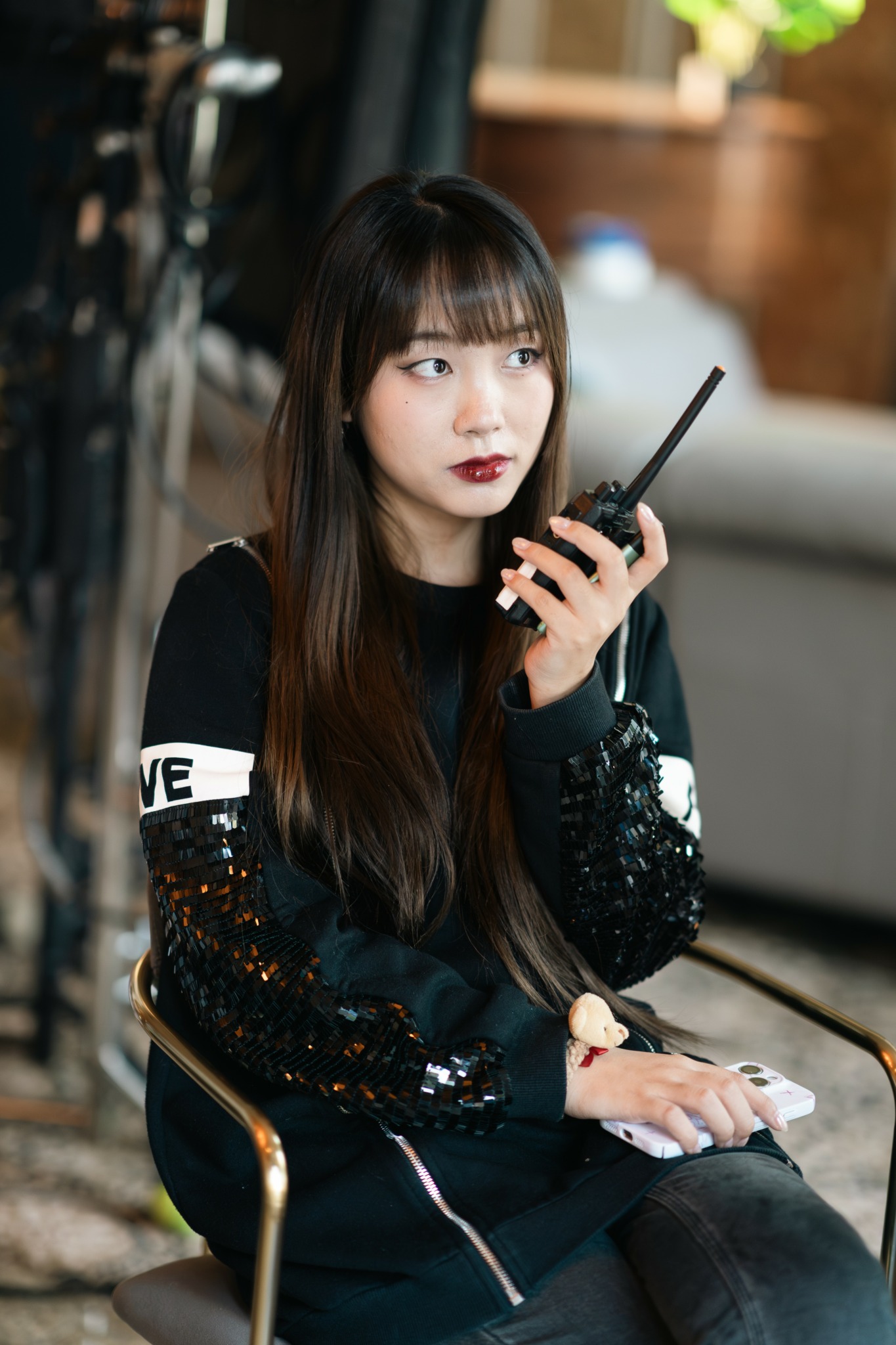Alright – so today we’ve got the honor of introducing you to Yaxin Zheng. We think you’ll enjoy our conversation, we’ve shared it below.
Yaxin, appreciate you joining us today. Let’s start with the story of your mission. What should we know?
My mission as an Intimacy Coordinator was born from a place of curiosity, creativity, and deep empathy. I first encountered this profession during a theater course in college—a course I took out of pure interest, without knowing it would shape my future. It opened my eyes to how vulnerable and often unsupported actors can be during intimate scenes. At the same time, I saw how directors often struggled to balance emotional truth with ethical responsibility. I realized there was a missing bridge between performance and protection, artistry and accountability.
Outside of class, I was actively involved in a theater club where I worked closely with peers on directing and staging plays. Those experiences allowed me to apply what I was learning in real time—navigating emotional storytelling while respecting boundaries. Meanwhile, my minor in psychology gave me tools to understand human behavior, trauma, and communication. It deepened my ability to listen, to observe what goes unsaid, and to create spaces where people feel seen and safe.
Today, that foundation has grown into my professional mission: to ensure that no actor feels unsafe or unheard in their most vulnerable moments on set. I strive to protect the emotional and physical well-being of performers while helping directors realize their creative vision—whether that’s capturing the tension of a first touch or the emotional complexity of a power dynamic.
I believe that authentic storytelling doesn’t come from pushing people past their limits; it comes from supporting them within clearly defined boundaries. I often find myself mediating between what’s unspoken—the actor’s hesitation, the director’s uncertainty—and turning it into collaborative clarity.

As always, we appreciate you sharing your insights and we’ve got a few more questions for you, but before we get to all of that can you take a minute to introduce yourself and give our readers some of your back background and context?
For those who may not have read about me before—hi, my name is Yaxin Zheng, and many of my friend call me Rita. I’m so glad you’re here.
I’m an Intimacy Coordinator and a Screenwriter, working primarily in film, television, short-form storytelling, and nowadays various of vertical shootings. My work centers around care, communication, and emotional honesty—whether I’m on set helping actors navigate intimate scenes or at my desk shaping characters and stories on the page.
My journey into Intimacy Coordination actually began in college, in the most unexpected way. I took a theater course purely out of curiosity, and that one class became a turning point. I was fascinated—not just by the technical process, but by the human element behind it all: how trust is built, how vulnerability is negotiated, and how storytelling can be both powerful and respectful. Today, as an Intimacy Coordinator, I work closely with actors, directors, and production teams to choreograph and facilitate intimate scenes in a way that feels clear, safe, and creatively aligned. I help solve a range of problems—from actors feeling uncomfortable or unsure about physical boundaries, to directors needing guidance on how to portray intimacy authentically without crossing ethical lines. I bridge that gap through consent-based choreography, open dialogue, and trauma-informed practices.
What makes me a little different in this field is that I’m also a Screenwriter—and that really shapes how I approach intimacy coordination. As a writer, I’m always thinking about character arcs, power dynamics, subtext, and emotional beats. I bring that same sensitivity to set. I don’t just ask, “Where should the actor place their hand?”—I ask, “What is this moment trying to say about the relationship? Is it tension, vulnerability, regret, desire?” That deeper narrative understanding allows me to support directors in capturing scenes that feel emotionally rich and layered, not just physically accurate.
I’m most proud of the spaces I’ve helped create—spaces where actors feel truly seen and protected, and where directors feel empowered rather than restricted. Intimacy work is often invisible when it’s done well, but its impact is lasting. Seeing an actor relax into a performance because they know they’re safe, or watching a director light up because we’ve found the perfect balance between beauty and boundaries—those are the moments that keep me going.
What I want potential collaborators and clients to know is this: I believe great storytelling and great care are not mutually exclusive. They go hand-in-hand. Whether I’m writing a screenplay or guiding an on-screen kiss, I’m here to tell the truth—with empathy, intention, and respect.
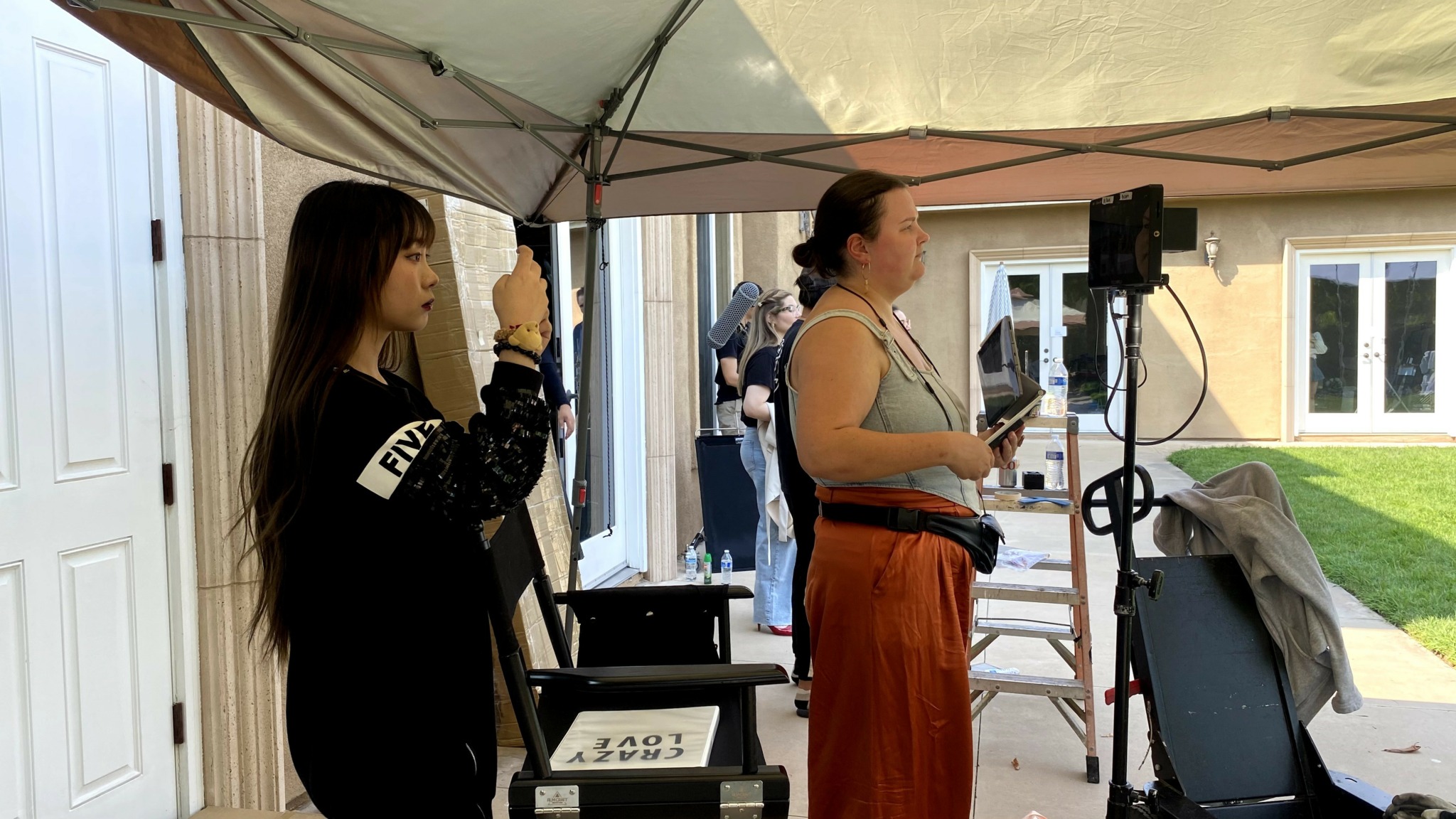
Is there mission driving your creative journey?
Yes—at the heart of my creative journey is the mission to protect vulnerability while honoring emotional truth.
Whether I’m writing a screenplay or coordinating an intimate scene, my work is driven by a desire to create safe, honest, and deeply human storytelling. I believe that some of the most powerful moments in film and television happen in spaces of emotional or physical vulnerability—but too often, those moments are approached without care, without structure, or without understanding the impact they can have on performers.
My mission as an Intimacy Coordinator is to transform how the industry thinks about intimacy—not as something taboo or awkward, but as an integral part of storytelling that deserves the same preparation, respect, and thoughtfulness as a fight scene or a complex emotional monologue. I want actors to feel protected and empowered, not exposed or uncertain. I want directors to feel creatively supported, not creatively restricted.
As a Screenwriter, my goal is similar: I write to explore the emotional layers between people—the silent tensions, the hidden desires, the moments of reckoning that often go unspoken. I try to write characters who are complex, messy, real—and I want the teams that bring them to life to be just as emotionally grounded and protected as the stories themselves.
Ultimately, my mission is to help build a creative culture where safety and storytelling go hand in hand—where no one is harmed in the name of “realism,” and where we can reach emotional depth because the environment is safe, not in spite of it.
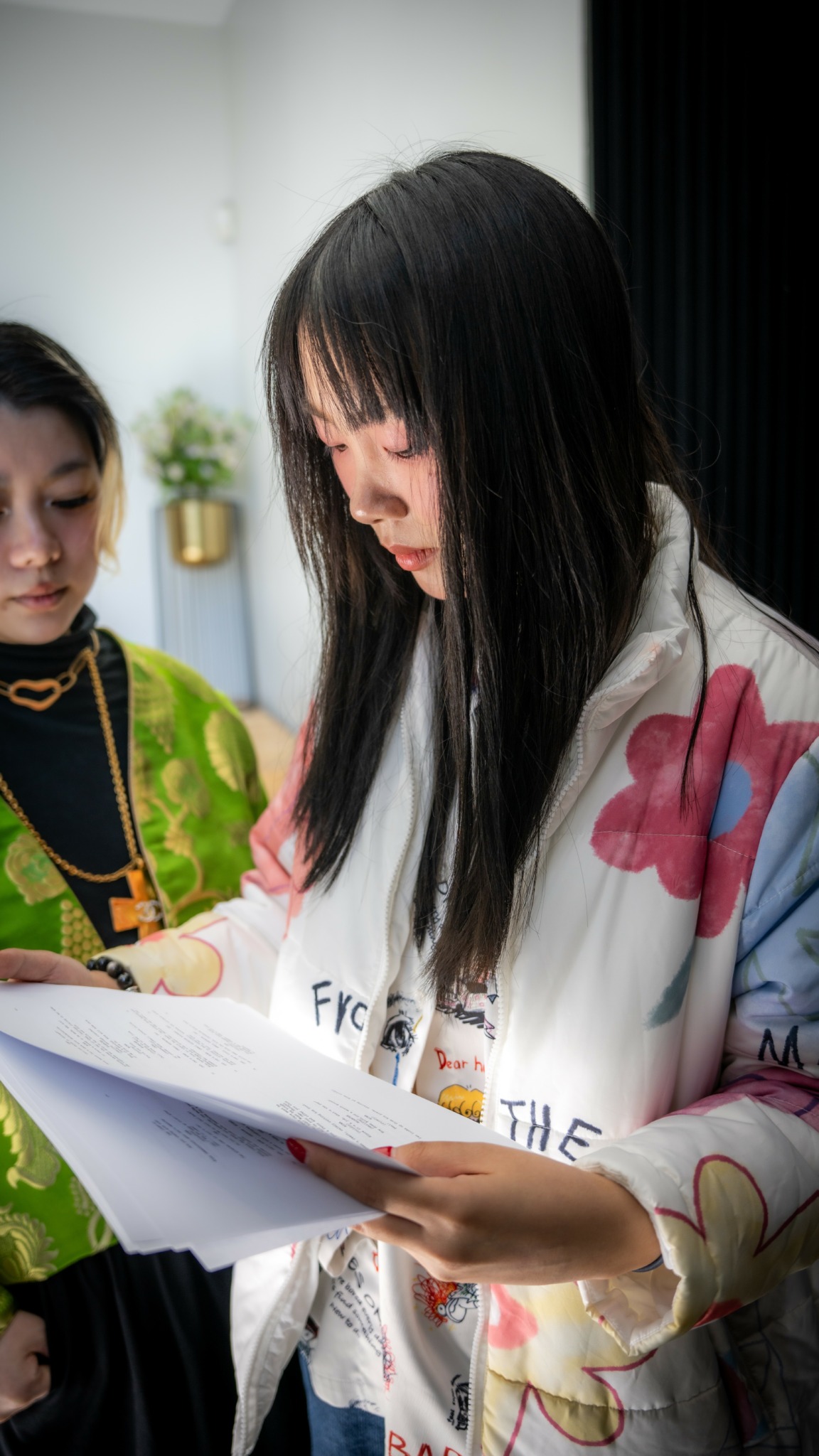
Are there any resources you wish you knew about earlier in your creative journey?
Yes, there are quite a few resources I wish I had known about earlier—especially when I was first trying to bridge the gap between storytelling and emotional safety.
When I first learned about the role of the Intimacy Coordinator, it felt both inspiring and overwhelming. At the time, there were very few clear entry points, and much of the learning had to be pieced together from multiple fields: theater, film, psychology, movement work, consent education, trauma-informed practice. I wish I had earlier access to structured training programs like those offered by Intimacy Directors and Coordinators (IDC) or Theatrical Intimacy Education (TIE)—organizations that not only provide technique, but also community and ethical grounding.
I wish someone had told me that it’s okay to ask for mentorship before you’re “ready.” For a long time, I felt I had to figure everything out on my own. But this is an emotionally complex field, and finding community—whether through peer support, online networks, or even just shadowing someone more experienced—is vital.
Now, one of my goals is to help make those resources more accessible to others starting out. Whether that’s sharing recommended readings, breaking down best practices, or just being someone others can reach out to—I want the next generation of intimacy professionals and storytellers to feel a little less alone, and a lot more supported.
Contact Info:
- Instagram: isrita_here
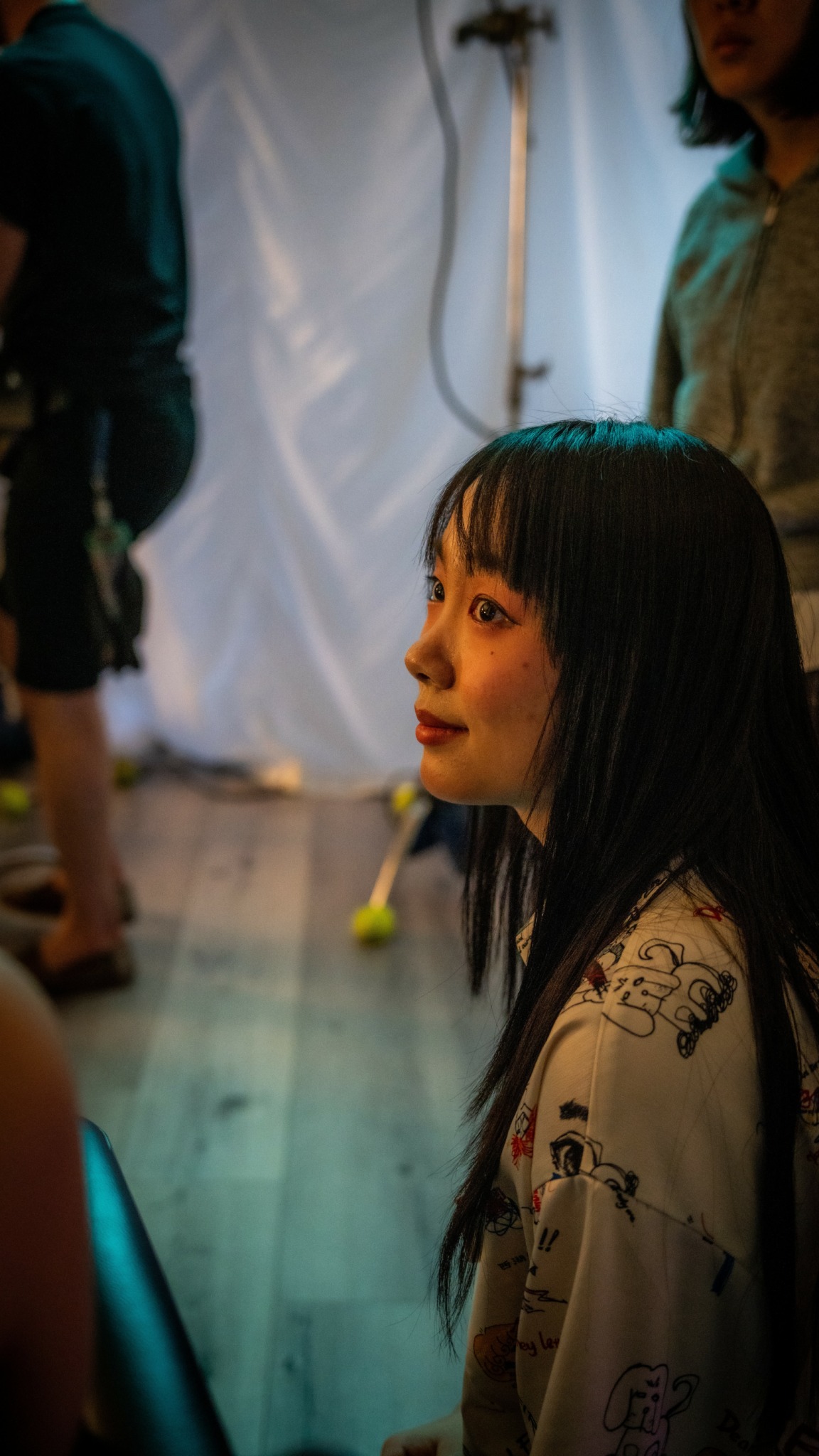
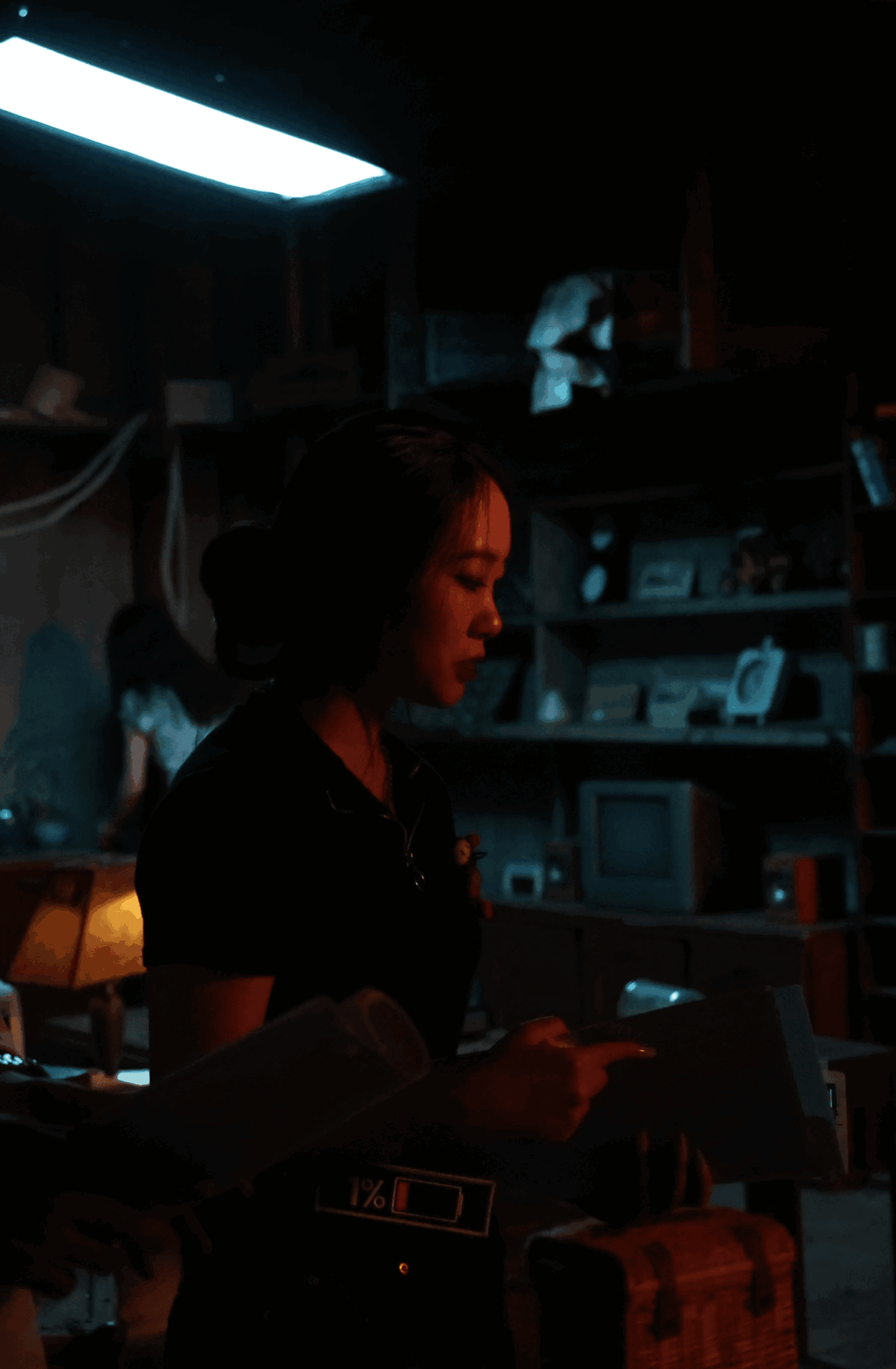
Image Credits
Credit: Qimo Li


